Free ABA Therapy Services for My Child With Autism

Understanding Your Child’s Autism Support Resources
Accessing free ABA therapy and autism support services is essential for many families looking to improve their child's development and manage behavioral challenges. Various programs, organizations, and government initiatives offer such services, often requiring specific eligibility criteria and enrollment procedures. This article explores the available free ABA therapy options, who qualifies, how to access them, and additional resources to support children with autism and their families.
Overview of Free ABA Therapy Services Available
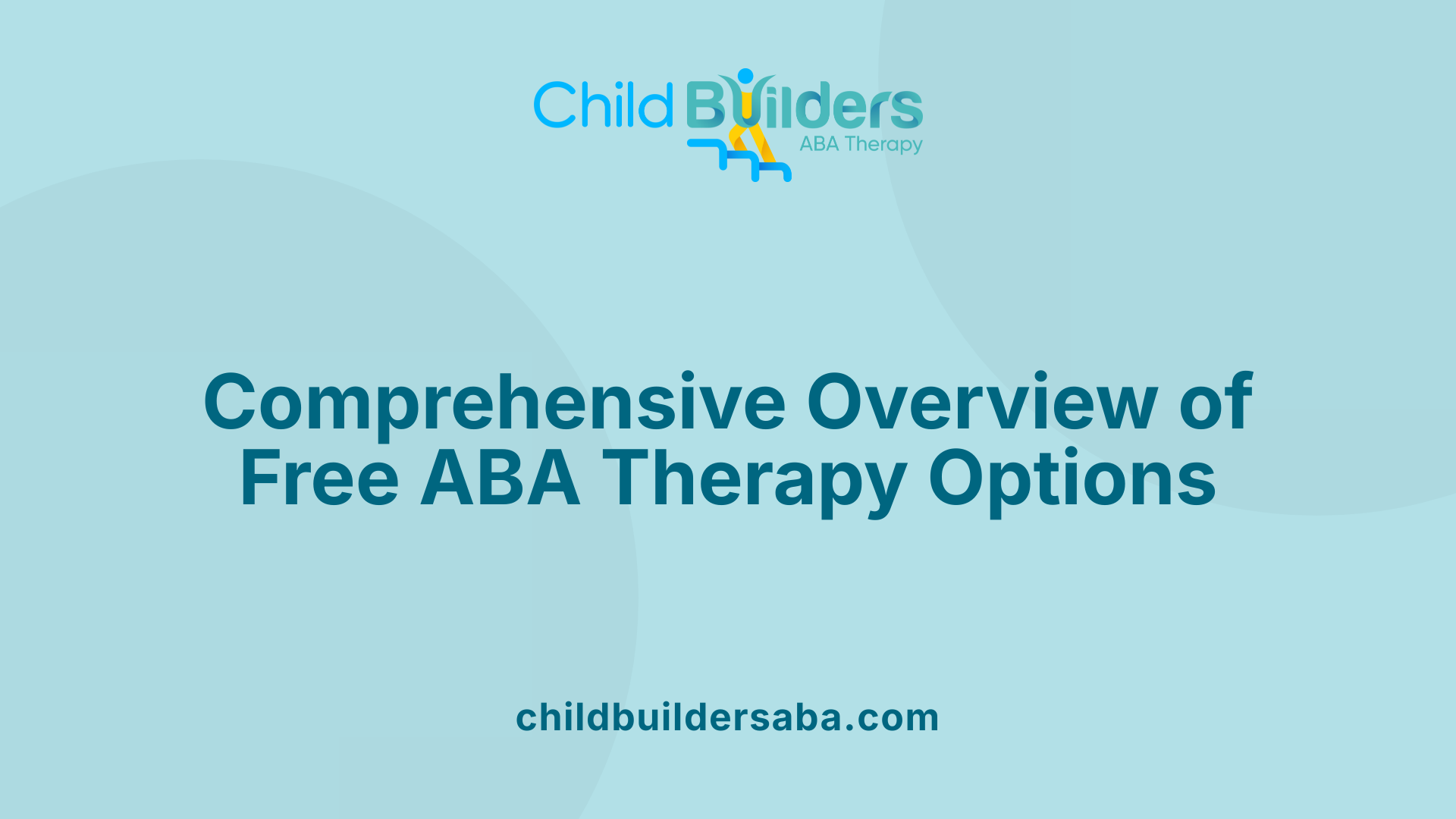
What free ABA therapy services are available for children with autism?
Children with autism have access to several free or low-cost ABA therapy programs, mainly through government and community resources. In Texas, the Children's Autism Program, managed by the HHS, provides targeted ABA services to children aged 18 months to 21 years. These services are designed to help children manage behaviors, develop new skills, and improve social interactions.
The program limits therapy to 180 hours per year, totaling up to 720 hours over the child's lifetime. Participation involves parent training, and families must attend at least 85% of sessions. Families are encouraged to review the ABA process and apply via local contractors or by calling 2-1-1.
In Arkansas, the Department of Human Services oversees similar services through the EPSDT program, available for children diagnosed with autism from 18 months up to 21 years. Authorized providers deliver therapy in natural environments such as homes and community settings, tailored to each child's needs.
In addition to state programs, many regional agencies and nonprofits offer free or sliding-scale ABA services. For example, children eligible in Tennessee can receive ABA through local agencies as part of broader early intervention efforts like LEAD, which supports children from birth to age 3.
Parents should discuss evaluations and referrals with their child's primary care physician to facilitate access. Overall, these programs aim to make effective behavioral interventions accessible to children who meet specific age and diagnostic criteria.
Eligibility Criteria for Free ABA Therapy Programs
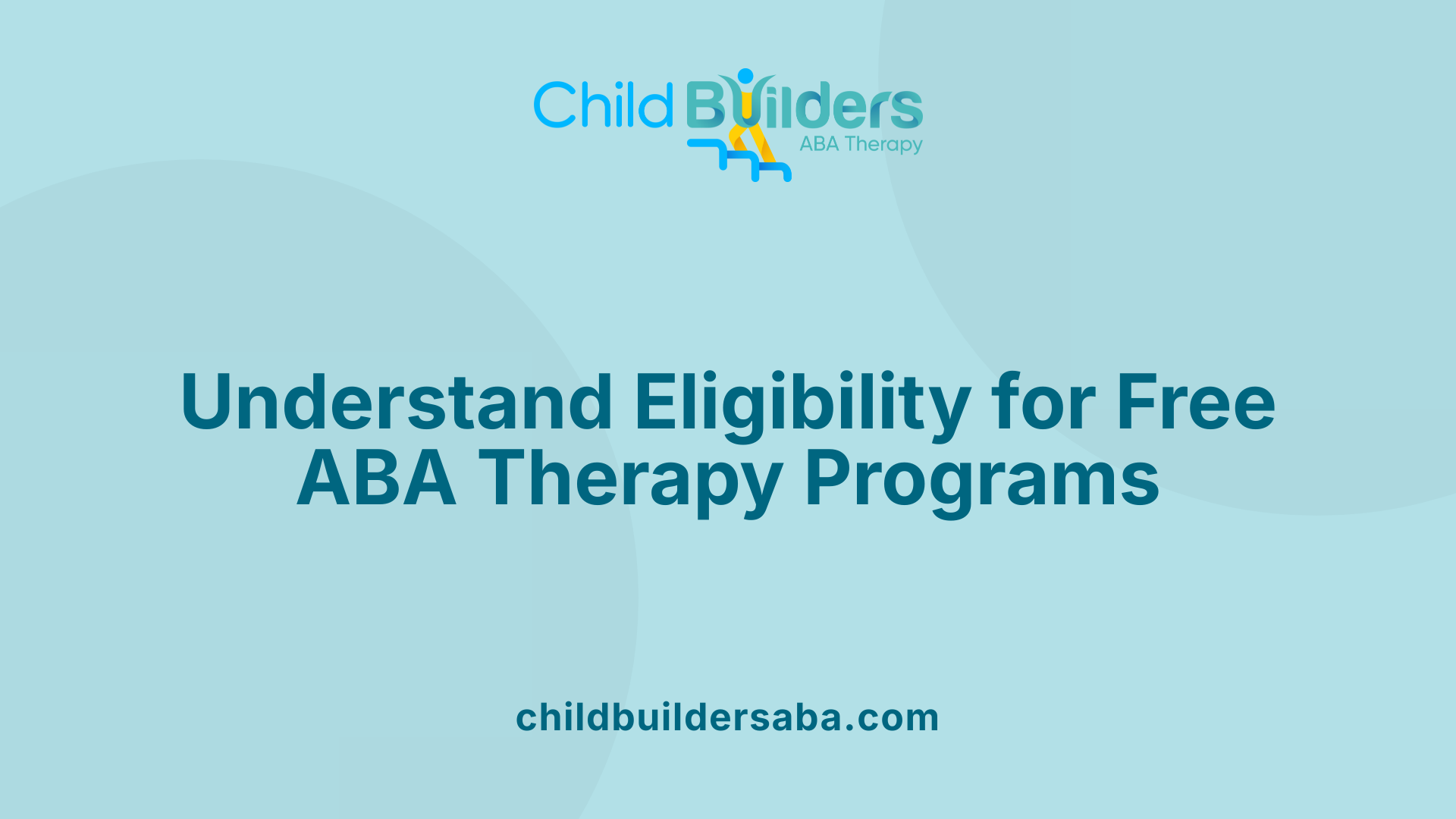
What are the eligibility criteria for accessing free ABA therapy programs?
Eligibility for free ABA therapy services generally depends on a formal diagnosis of autism spectrum disorder (ASD) or other developmental disabilities. For children under 21 seeking support through programs like Medicaid or state-funded initiatives, a comprehensive evaluation by qualified healthcare providers such as neurologists, psychologists, or psychiatrists is essential.
This assessment must confirm the child's ASD diagnosis and establish medical necessity for therapy. The diagnosis typically needs to be documented through standardized testing and clinical observations.
Children who qualify usually have a disability that began before age 18, significantly interfering with daily activities, and is expected to last indefinitely. This means the condition is ongoing and impacts the child's development or functioning across different settings.
Assessment procedures for eligibility are often provided without cost to families. These evaluations determine if the child meets the criteria for the program. In addition to diagnosis, some programs consider income levels and other specific requirements, so families may need to submit financial information or documentation.
Overall, meeting the diagnostic and medical necessity criteria, along with program-specific rules, are essential to access free ABA therapy. Families are encouraged to consult local providers or contact agencies like 2-1-1 for guidance on navigating these eligibility pathways.
How to Access or Enroll in Free ABA Therapy Services
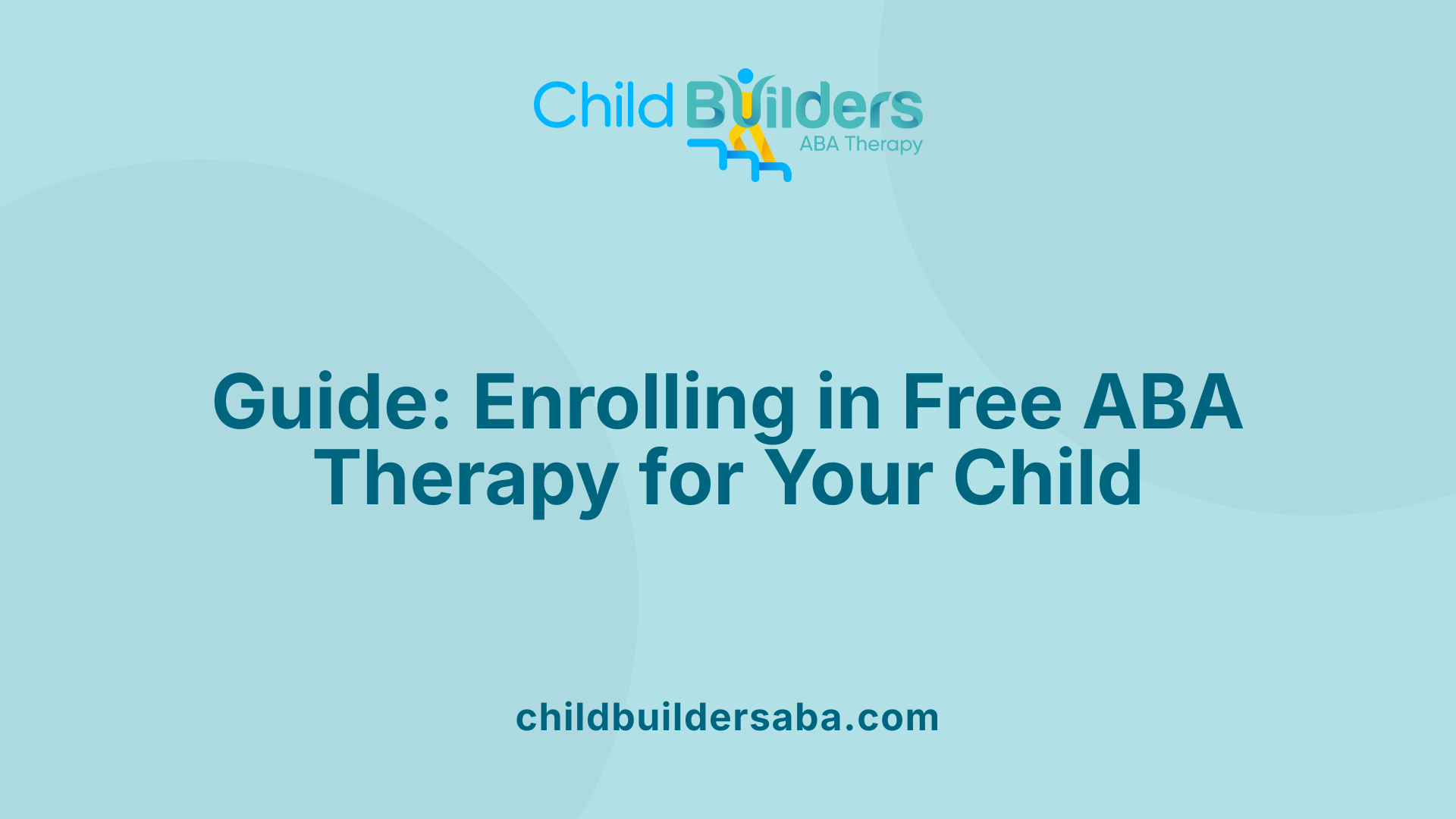
Steps for parents and caregivers
To access free ABA therapy services, parents and caregivers should start by consulting with their child's healthcare provider. This professional can perform assessments and provide diagnoses necessary for eligibility, especially for programs like the Children’s Health Services (EPSDT) in Arkansas or state-funded initiatives in Texas. Once diagnosis is confirmed, they can explore local resources such as autism support organizations, which often offer guidance on navigating available services.
Another important step is reaching out to schools. Many public school districts provide ABA therapy for eligible children through individualized education plans (IEPs). This collaboration ensures therapy is tailored to the child's educational needs and can be delivered in a natural environment, such as the classroom.
Parents should also investigate government programs like Medicaid Waiver Programs, regional centers, and public health departments. These programs often facilitate access to free or low-cost ABA services for children diagnosed with autism.
Finally, connecting with local contractors or agencies—by calling 2-1-1 or visiting official websites—can provide direction and assistance in enrolling for services. It’s always advisable to verify the credentials of any service provider to ensure quality and compliance.
Role of healthcare and educational providers
Healthcare providers, including primary care physicians and specialists, play a crucial role in diagnosis and referral. They can initiate evaluations and recommend suitable treatment plans, including ABA therapy.
Educational providers are equally vital; they can incorporate therapy services through IEPs or similar educational plans, often providing therapy in inclusive settings. Collaboration between medical and educational teams ensures a holistic approach to a child's development.
Using local organizations and government programs
Local autism support organizations and advocacy groups serve as valuable resources. They offer guidance on the application process, eligibility requirements, and available supports.
Government programs like Tennessee’s TEIS (Early Intervention System) and Arkansas’s Children’s Health Services (EPSDT) provide structured pathways to free or subsidized ABA therapy for eligible children. These services are available across various settings—home, school, or community—making access more flexible.
By working closely with healthcare providers, educational teams, and local support agencies, parents and caregivers can effectively secure the necessary ABA services to support their child's growth and development.
Resources and Organizations Offering Autism Support Information
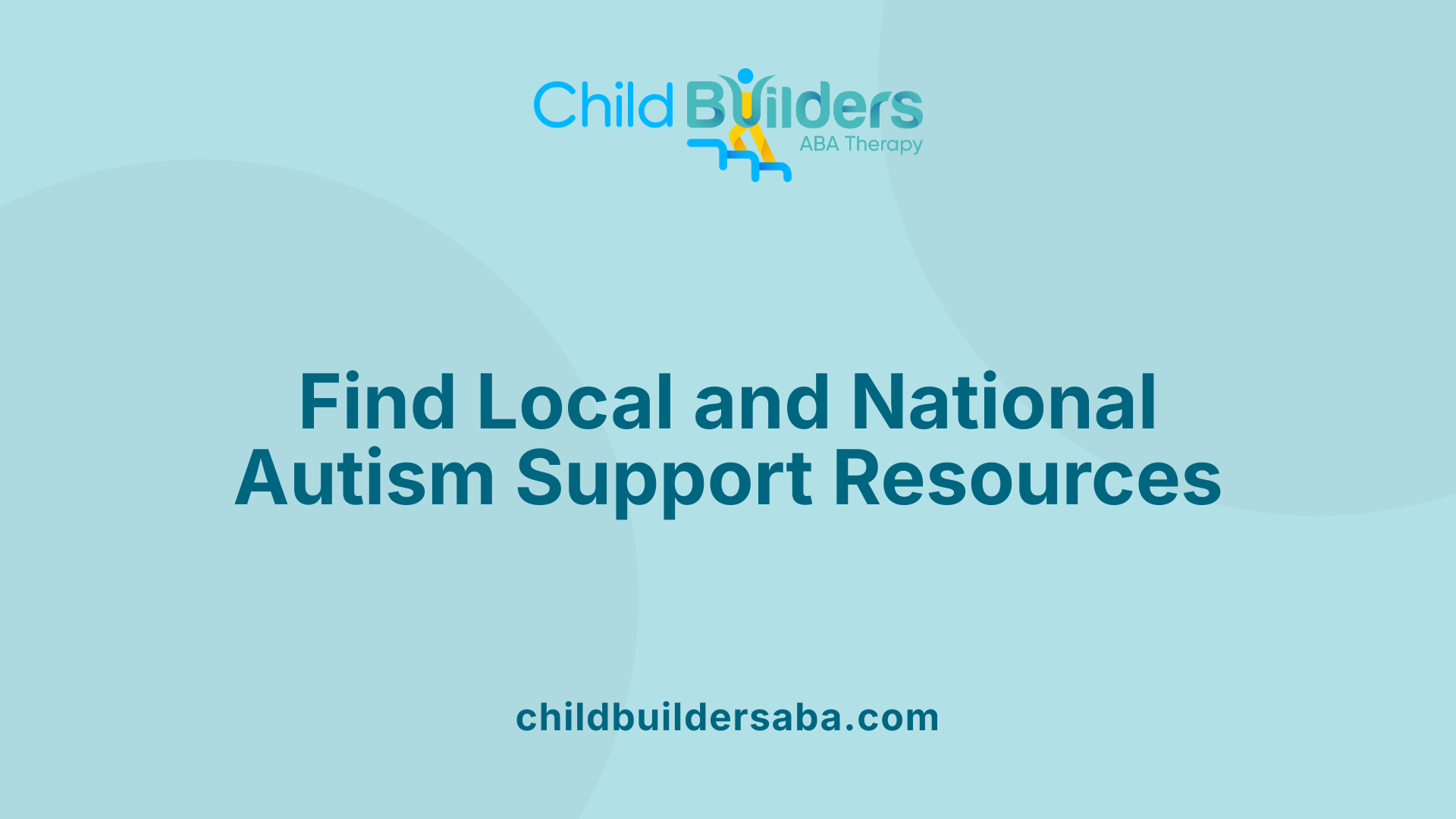
What organizations provide information about free autism support services?
Numerous organizations are dedicated to supporting individuals with autism and their families. National groups such as Autism Speaks and the Autism Society are well-known for providing extensive resources, including guides on free services, educational workshops, support groups, and funding assistance. These organizations often have helplines and websites with personalized guidance to help families navigate available services.
At the state level, health departments and agencies like the Tennessee Department of Education's Division of Special Education and the Arkansas Department of Human Services offer information on early intervention programs, community services, and benefits such as Medicaid Waivers. They also facilitate access to specific therapies and educational support tailored to children’s developmental needs.
The Center for Autism and Related Disabilities (CARD) and local health agencies frequently provide detailed support about behavioral therapies and how to access these services at no cost or through insurance coverage.
Online platforms like the Interagency Autism Coordinating Committee (IACC) website compile regional and national resources, making it easier for families to find local support networks, applied behavioral analysis (ABA) programs, and parent training opportunities. These resources are essential for families seeking comprehensive and accessible assistance.
| Organization/Source | Types of Support Offered | How to Access | Examples |
|---|---|---|---|
| Autism Speaks | Educational materials, support groups, funding info | Website, helpline | Free guides, local workshops |
| Autism Society | Support networks, events, local resources | Local chapters, online | Parent support groups, advocacy |
| State Health Departments | Early intervention, community programs | State websites, local offices | Medicaid Waivers, therapy info |
| Center for Autism and Related Disabilities (CARD) | Behavioral therapy, training | University affiliates, website | ABA programs, parent training |
Families are encouraged to explore these organizations’ websites and contact local offices or helplines for personalized assistance, ensuring access to free or subsidized autism support services.
Additional Support Options and Interventions for Children with Autism
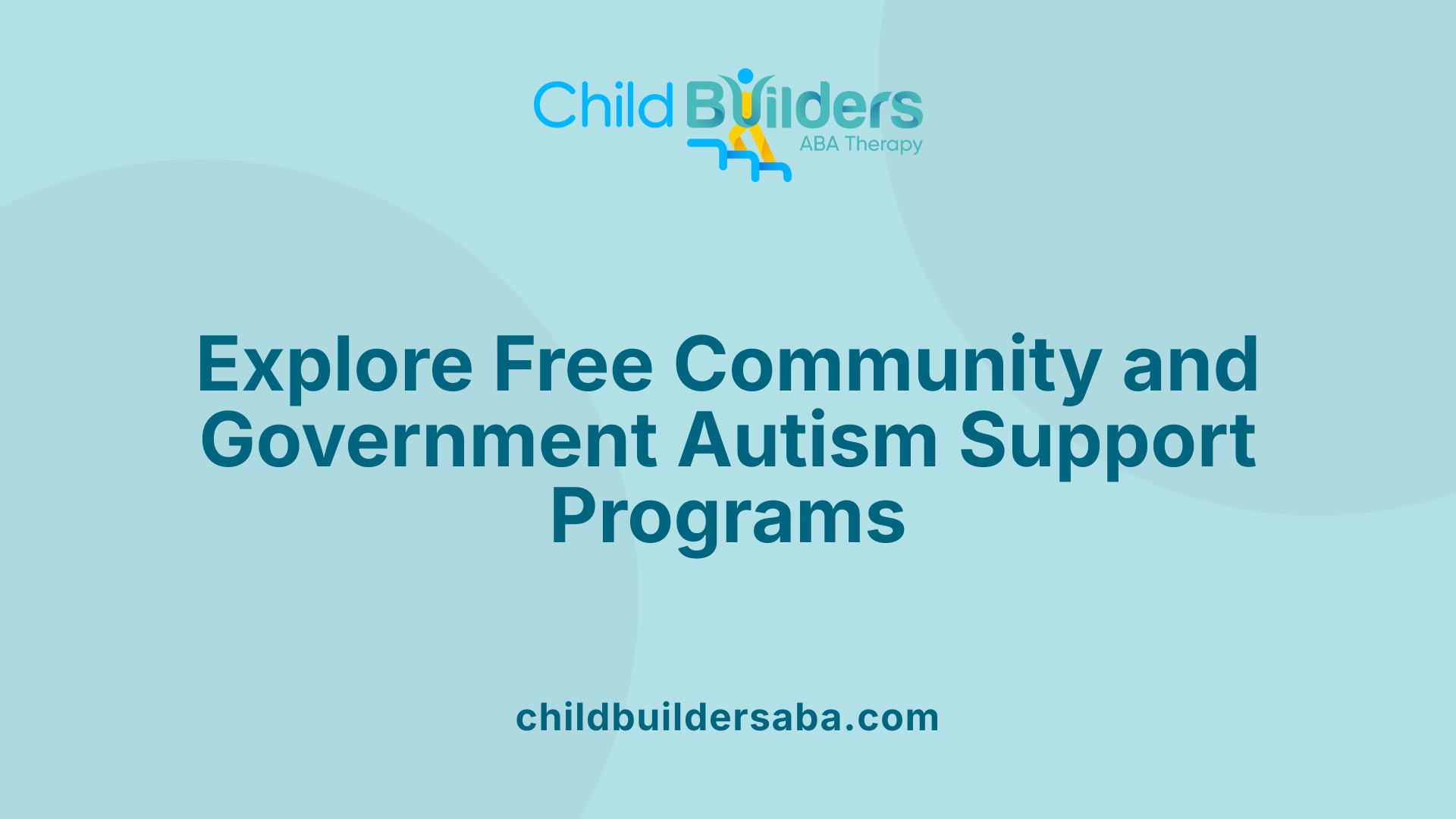
What options are available for free autism-related support and interventions?
Families seeking assistance for children with autism have access to a range of free resources and programs. Community organizations often host support groups and social skills workshops that are open to families at no charge. For example, the Autism Alliance of America (AANE) offers free support forums where parents and caregivers can share experiences and gain practical advice.
Government initiatives also play a vital role in providing cost-free services. Programs like the Individuals with Disabilities Education Act (IDEA) ensure educational accommodations such as tailored classroom support and social skills training. Medicaid and state-funded programs extend coverage to behavioral therapies, including certain early intervention services and behavioral coaching for families.
Online resources serve as convenient tools for families to learn about autism interventions, connect with local support networks, and participate in informational events. Local community groups periodically organize free clinics, workshops, and informational sessions aimed at increasing awareness and equipping families with strategies to support their child's development.
Overall, the combination of community, government, and online resources creates a comprehensive safety net. This network helps families manage autism-related challenges, promote social and adaptive skills, and foster a supportive environment for their children’s growth—all free of charge.
Empowering Families Through Access and Knowledge
Access to free ABA therapy and autism support services is crucial in supporting the development and well-being of children with autism. Through a combination of government programs, local organizations, and dedicated resources, families can find pathways to effective interventions without financial burden. Staying informed, connecting with community resources, and working closely with healthcare and educational providers can make a significant difference in ensuring children receive the support they need to thrive.
References
- Services for children with special needs
- Children's Autism Program | Texas Health and Human Services
- Autism Services - Arkansas Department of Human Services
- Resource Guide | Autism Speaks
- Financial assistance resources | Autism Speaks
- Autism Resources - Florida Department of Health
- Free Programs - AANE





































































































